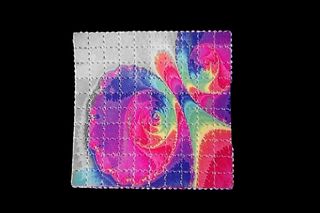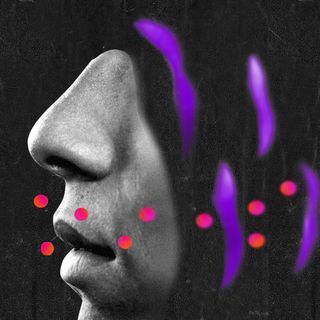
LSD May Improve Memory by Increasing the Brain’s Ability to Rewire, Suggests Research
“…they should be seen not just as medicine, but also as part of human life at large.”

A new study published in the journal Experimental Neurologysuggests that lysergic acid diethylamide, the psychedelic substance colloquially referred to as LSD or acid, could improve memory and learning.
Previous research into psychedelics has looked at how they could aid psychotherapy in treating psychiatric disorders like depression and post-traumatic stress, and some studies have looked at how psychedelics may be a mood-lifter. However, there has been limited research on the molecular and cellular activities that these substances trigger.
The current research is the first time scientists have looked directly at the effects of psychedelic substances on the brain from the perspective of looking at the use of psychedelics beyond medicinal usage. Their aim was to understand whether LSD could improve memory performance in humans. This would then mean that LSD’s potential isn’t just limited to therapeutic usage, but could have benefits beyond that.
For their study, the researchers carried out investigations on organoids, rats, and humans to understand the different aspects of how LSD affects the brain.
It has to do with LSD’s nootropic properties; more simply known as “smart drugs,” nootropics are substances that enhance cognitive function. The research found initial evidence of LSD increasing the markers of neuroplasticity, or the ability of neural networks in the brain to reorganize and change their activity in response to stimuli. Researchers studied how this works using human brain organoids — artificially grown miniature organs that resemble the brain, often used in medical science to study the brain in detail.
The organoids helped scientists map the effects of LSD on a cellular level. The researchers found that LSD impacted several processes of the brain, including DNA replication and a process called mTOR signalling. The mTOR pathway is a protein enzyme that scientists describe to be “involved in multiple neural plasticity events, acting as a hub between plasticity, learning, and memory.” In their report, the scientists further state, “data from human brain organoids suggest that LSD regulates multiple processes involved in neural plasticity.”
Related on The Swaddle:
New Research Hints at a Link Between Psychedelics and Improved Heart Health
Trials on rats further helped the researchers examine the effects of LSD on memory processes, determined by the brain’s hippocampus. 76 rats underwent a novel object preference experiment — which tracks memory in animals by observing whether they prefer familiar, remembered objects or newer, novel ones — several days after being administered a single dose of LSD or a non-reactive saline solution. Rats who received the LSD dose spent more time exploring novel objects, implying they remembered earlier objects and didn’t want to examine them for long.
For the experiment involving human participants, the researchers picked 25 healthy volunteers who had previously used LSD at least once before. The participants received a dose of 50 micrograms of LSD in one session and 50 micrograms of a placebo in the other, after which they went through a couple of common neuropsychological assessments that are used to gauge the memory activity of the brain. The results showed that the LSD session saw participants with improved memory as compared to the placebo session.
Speaking on these findings to Psypost, co-author of the study Sidarta Ribeiro noted that “even a single dose of LSD can promote neural plasticity and enhance cognition in healthy adults, several days after the LSD administration.”
He added, “Psychedelics have been demonized since the 1960s and in the past decade they have returned to biology and medicine through the front door. However, the utility of psychedelics is not restricted to the treatment of patients with pathological condition. They can also be very useful to improve the cognition of healthy individuals, i.e., they should be seen not just as medicine, but also as part of human life at large.”
It is important here to note that some known adverse effects of LSD include hallucinations, distorted visual perceptions, and an increase in heart rate and blood pressure. LSD can also cause mood changes, nausea, an increase in blood sugar, and loss of sleep and appetite. Hence, the current findings should be interpreted with prudence, as they explore the possibilities of beneficial uses of the psychedelic substance and do not promote abuse of the drug.
Ribeiro also highlighted other limitations, noting that researchers “still need to learn more about age differences, potential gender differences, and the role of the context in the modulation of the effects.” But the study is significant in indicating that LSD’s uses may extend beyond psychotherapy: they could help promote the overall well-being of humans.
Amlan Sarkar is a staff writer at TheSwaddle. He writes about the intersection between pop culture and politics. You can reach him on Instagram @amlansarkr.
Related


How Covid19’s ‘Less’ Harmful Symptoms Like Loss of Taste, Smell Are Continuing to Disrupt Lives Even After Recovery
